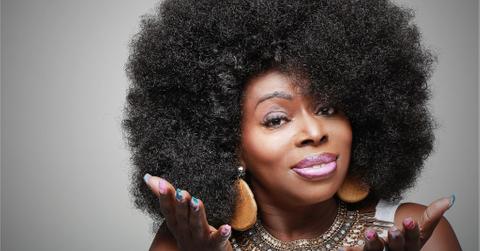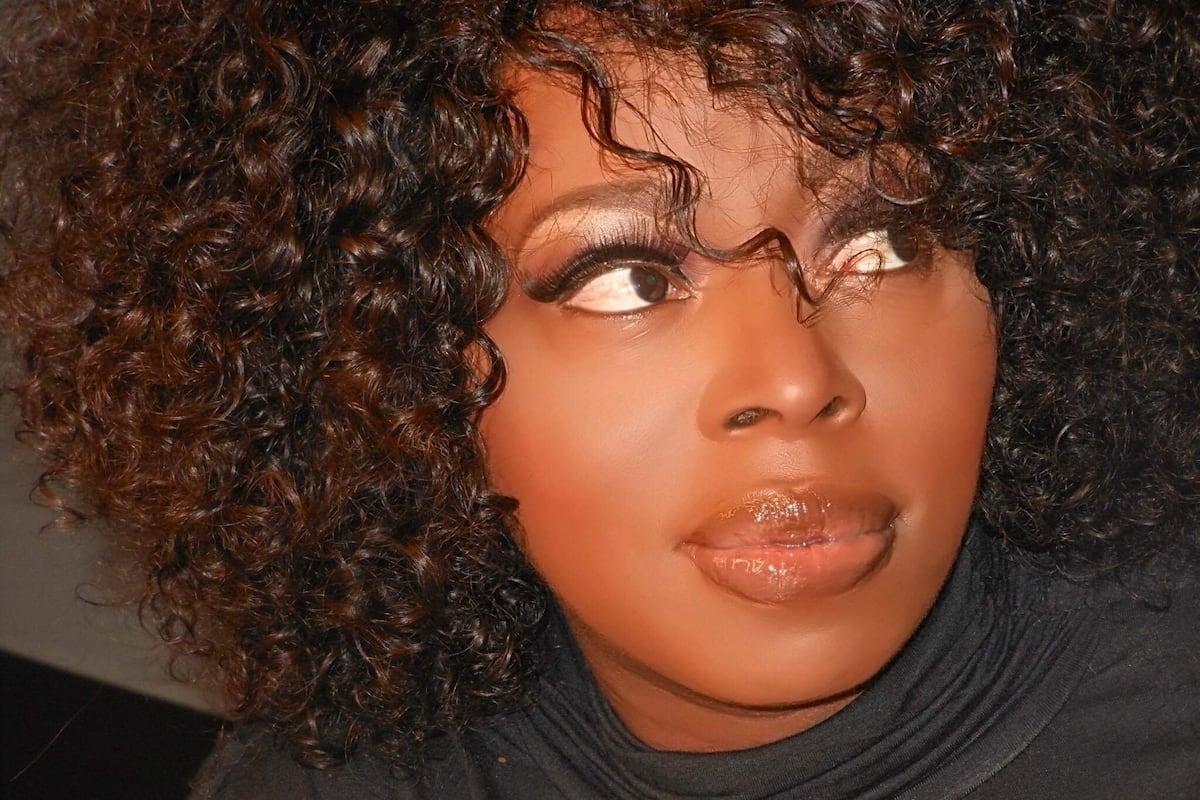
From The Sequence to Solo Stardom
Angie Stone's musical journey is a masterclass in resilience, reinvention, rebirth, and raw talent.
By Dr. Dominique CarsonJune 27 2025, Published 4:15 p.m. ET

Her evolution is groundbreaking and inspirational and emphasizes the power of artistic growth. The Grammy-nominated singer, songwriter, actress, and rapper honored her Southern roots with her music and discovered the beauty of her own voice through decades of hard work and perseverance.
Stone demonstrated unwavering determination from her early days as a pioneering member of the first all-female gold-selling rap group, The Sequence, in the 1970s alongside Cheryl "The Pearl" Cook and Gwendolyn "Blondie" Chisolm. Their 1979 hit "Funk You Up" was groundbreaking in music history. It was the second rap single ever released and the first by a female group, solidifying their status as pioneers in hip-hop. Stone's contributions to The Sequence helped open doors for women in rap and laid the foundation for her lifelong music career.
After the group disbanded, the South Carolina native became a celebrated solo artist in the R&B and neo-soul genres. Throughout the 1980s and early '90s, she continued to evolve as a vocalist and songwriter, contributing to projects that would later influence the neo-soul movement. In the 1990s, she became a member of the R&B trio Vertical Hold, known for the hit single “Seems You’re Much Too Busy.” During this period, Stone honed her vocal style—a soulful blend of gospel roots, smooth R&B melodies, and a touch of funk—distinguishing her as an artist of emotional depth and vocal richness.
Legendary record executive Clive Davis discovered Stone's multifaceted range in songwriting and vocal capabilities. He signed her to Arista Records, and she followed him when he launched J Records because of her soulful talent. Stone's solo debut came in 1999 with the release of Black Diamond. The album was a critical and commercial success, anchored by the hit single "No More Rain (In This Cloud)," which sampled Gladys Knight & The Pips.
The song was inspired by the birth of her son, Michael, from a state of depression after her breakup with Grammy award-winning singer D'Angelo and utilized the memorable phrase her father used to say when she used to ask for money when she was a child. The single showcased Stone's gift for blending old-school soul with modern sensibilities. With Black Diamond, Stone also emerged as a vocalist and a storyteller—her lyrics offering messages of self-love and emotional vulnerability.
Her follow-up albums, including Mahogany Soul (2001) and Stone Love (2004), solidified her status as a leading voice in the neo-soul genre. Tracks like "Brotha," "Wish I Didn't Miss You," "Baby," "Sometimes," and "I Wanna Thank Ya" demonstrated her ability to straddle the line between classic soul and contemporary R&B, appealing to a broad audience while staying true to her musical roots. The song "Brotha" is an anthem for black and brown men navigating life's challenges. Her songwriting skills have left an indelible mark, from penning the theme song for the TV sitcom Girlfriends to contributing to D'Angelo's debut album, "Brown Sugar."
However, Angie Stone's influence surpasses her impressive collaborations and diverse musical genres. Her unwavering commitment to authenticity lies in valuing substance over fleeting trends. Her partnerships with heavy hitters such as Stevie Wonder, Erykah Badu, Joe, Calvin Richardson, Musiq Soulchild, Snoop, Mariah Carey, Mary J. Blige, D'Angelo, Lenny Kravitz, and Alicia Keys have further cemented her as a vital force behind the scenes of modern music. Her illustrious career is a testament to her dedication and integrity, allowing her to leave an indelible mark on the industry.
Angie Stone's long-lasting career has been transformative—from a pioneering emcee to a neo-soul icon. As the music landscape evolved, so did Angie Stone, becoming more soulful, daring, and firmly anchored in greatness. Stone's remarkable ability to adapt while maintaining her authentic essence has secured her place as an enduring legend, her soul-stirring voice resonating deeply with generations of listeners. Tragically, she lost her life in a car crash in March 2025 at the age of 63. However, her music continues to inspire and uplift audiences today, illuminating the profound impact she has made on the music scene over the past four decades. We are forever grateful for her remarkable legacy.

